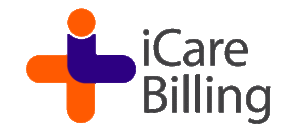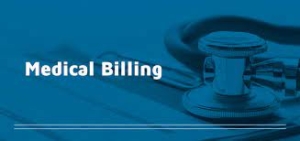Healthcare financing may be as scary as unexplored seas. Medical Billing Company help navigate the healthcare industry’s financial complexities. Unsung heroes decipher complex procedures and streamline billing processes. In this article, we examine the differences between minor and major medical billing organizations and their specialized services. Our focus is on modern technological integration and professional teams. We discuss transparent pricing methods and the tricky balance between cost and quality as we handle cost issues. We emphasize eliminating hidden costs and good communication to prevent typical mistakes.
Finally, we encourage healthcare practitioners to examine the advantages and downsides and follow their intuition when making decisions. Join us as we discover the secrets of choosing the best medical billing companies and design a route for financial success in the ever-changing healthcare industry.
Landscape comprehension
Medical billing companies vary.
Now that we’ve touched on medical billing organizations let’s explore their diversified terrain. Small businesses to enormous juggernauts, each with their offers, are available.
- Small-Scale vs. Large-Scale Operations
Imagine a busy medical billing marketplace. Like local vendors, small-scale enterprises provide customized services and a hands-on approach. These firms target niches or regions, creating connections like a neighborhood grocer who understands your tastes.
The medical billing retail giants are large-scale enterprises. They conduct a lot of transactions for a broad customer. They need to gain the personal touch of smaller firms, but they have a solid infrastructure and can handle complicated, high-volume circumstances.
Small-scale or large-scale activities depend on preferences and demands. The fundamental choice between individualized service and scaled efficiency and resources. The familiarity of a smaller organization may soothe certain healthcare practitioners, while more prominent companies may provide more complete answers.
-
Specialized Services
Let’s examine medical billing firms’ specialized services. It’s about meeting healthcare sectors’ demands, not bills and rules.
Consider it when choosing a tool for a task. Some medical billing organizations specialize in pediatrics or orthopedics and understand their complexities. This specialty guarantees that charging matches the complexities of medical services.
Specialized medical billing firms become specialists in their fields, whether mental health billing or surgical operations. The customized services of these professional operators typically comfort healthcare practitioners seeking accuracy and competence.
Key Features To Consider
Choosing the proper medical billing business requires a compass that points to vital qualities. These features guide you through healthcare budget difficulties. Unfold this map and see the key factors to consider when assessing medical billing businesses.
Integrating Advanced Technology
- Streamlined Billing Processes: Streamlined billing procedures are like a well-choreographed dance, with each phase flowing smoothly. Advanced technology integrates the charging process into a rhythm. Well-integrated systems streamline the billing cycle from invoice generation to claim submission. It streamlines financial processes from service to reimbursement, like a GPS.
- Security Measures: Security measures are essential in healthcare financing. It’s about bolstering healthcare providers’ financial fortress, not simply preserving sensitive data. Technology enhances security, preventing breaches and protecting patient data. Having a diligent guardian protects financial data against illegal access.
Staff with Experience
- Coding Expertise: The coding section of a medical billing firm should have the experience of a qualified linguist who can quickly comprehend complicated codes. Coding is the foundation of healthcare billing, putting medical services into terminology insurers and regulators understand. Coders assure accuracy and compliance, avoiding billing mistakes and payment delays. It’s like a language maestro who masterfully directs the billing story.
- Industry Knowledge: Competence in the healthcare profession needs a comprehensive awareness of its complexities, not simply technical expertise. Staff with industry experience are like navigators through healthcare rules, compliance requirements, and changing billing procedures. This makes the medical billing business a strategic partner in healthcare providers’ financial health, not merely a service provider.
Cost Considerations
As we choose a medical billing business, pricing becomes more important. Understanding healthcare services and financial consequences is essential to navigating healthcare financing. Let’s explore medical billing cost factors.
Pricing Transparency
Medical billing firm pricing models should be transparent, like a bright blue sky without clouds. Transparent pricing is a commitment to financial transparency, not simply a term. Look for medical billing firms that disclose all prices without hidden fees.
Transparency goes beyond statistics to include knowing the services included in the pricing. Imagine a restaurant menu with thorough ingredient and preparation descriptions. Transparent pricing models in medical billing allow physicians to make educated choices without financial shocks.
Cost-Quality Balance
Let’s talk about cost-quality balance. It’s about finding a balance that meets healthcare professionals’ requirements and expectations, not just finding the lowest alternative.
Consider this: A medical billing firm has low costs but poor service, causing mistakes, delays, and irritation. However, a high-priced service may be high-quality but strain smaller healthcare providers’ budgets.
The value proposition must be carefully assessed to find the sweet spot. The price includes what services? Does the firm give value beyond the price? It’s like choosing a well-balanced meal with flavors and nutrients that suit your tastes and diet.
The ideal medical billing business knows that cost-quality balance is a dance and values value for money. Quality shouldn’t be sacrificed to save money, nor should unnecessary features be added. Healthcare providers receive effective, dependable billing services without breaking the budget by striking this balance.
Avoid Common Mistakes
When choosing a medical billing business, we must be aware of various hazards that might derail the process. There are hidden reefs and rough waters on every expedition. Here are two Medical Billing Company mistakes to avoid.
Hidden Fees
Hidden medical billing expenses are like sailing with a clear chart and finding hidden rocks. The costs may emerge like sea monsters, creating financial turmoil for healthcare providers.
Examine a medical billing company price structure for hidden fees and levies. These costs may be hidden in the small print behind the paramount price. Hidden expenses like transaction fees and service fees might reduce the financial advantages of outsourcing medical billing.
Avoiding this problem requires choosing a transparent partner, as said. A reliable medical billing business discloses all charges upfront, allowing healthcare professionals to navigate financial storms with confidence.
Poor Communication Channels
Healthcare providers and medical billing firms must communicate well to succeed. Poor communication channels are like sailing in dense fog—uncertain, unsettling, and dangerous.
Imagine sending vital information to a medical billing business and receiving no answer. Poor communication channels may cause billing problems, payment delays, and strained relationships between healthcare providers and billing partners in the fast-paced world of healthcare.
Watch their communication methods while choosing a medical billing firm. Are they reachable? Do they have dedicated support? Is communication for issues and questions clear? A trustworthy medical billing partner knows the value of good communication and gives healthcare providers a direct path to resolve issues.
Make A Decision
Picking a medical billing business is like steering a ship through unfamiliar waters. It involves critical analysis, evaluating benefits and disadvantages, and following your intuition. Let’s navigate the last part of our trip and examine the critical decision-making procedures.
Considering Pros and Cons
Weighing pros and disadvantages involves placing benefits on one side of a scale and possible negatives on the other. Medical billing requires a thorough evaluation of each candidate’s qualities, prices, and dangers.
Consider the benefits: Do medical billing companies integrate innovative technology, provide transparent pricing, and have skilled staff? What about customer testimonials and success stories? Conversely, what might go wrong? Any hidden expenses, communication issues, or other problems that might affect the partnership?
Making a pros and drawbacks list visualizes the decision-making process. It’s like drawing a map with apparent pathways and probable roadblocks to help healthcare practitioners make the best option.
Following Your Gut
Instinct, often overlooked, may influence decision-making beyond facts and analysis. Trusting your intuition is like navigating by the stars—it requires a more profound knowledge than what’s written.
Consider how you feel about medical billing company encounters. Do your communications inspire trust and transparency? Do you trust them to understand and meet your needs? Your intuition may frequently pick up on details outside the pros and drawbacks list.
You shouldn’t ignore sensible pros and downsides just because you believe your senses. Instead, it adds intuition to the decision-making process, guaranteeing that the selected medical billing firm matches both formal standards and a gut feeling of trust and suitability.
Healthcare professionals should step back and analyze the benefits and drawbacks, examine concrete and intangible elements, and trust their intuition in the last moments of decision-making. The selected medical billing business becomes a dependable partner in navigating complex healthcare finances with this comprehensive approach.
Conclusion
Choosing a medical billing company is like sailing unknown seas in healthcare financing. The compass guides us to a decision as we analyze pros and disadvantages, evaluate characteristics, and trust intuition. The success of this journey depends on healthcare practitioners’ knowledge, transparency, and intuition to make educated decisions. The selected medical billing business should simplify healthcare finances and provide a smooth journey to financial health and success in the ever-changing healthcare market.

